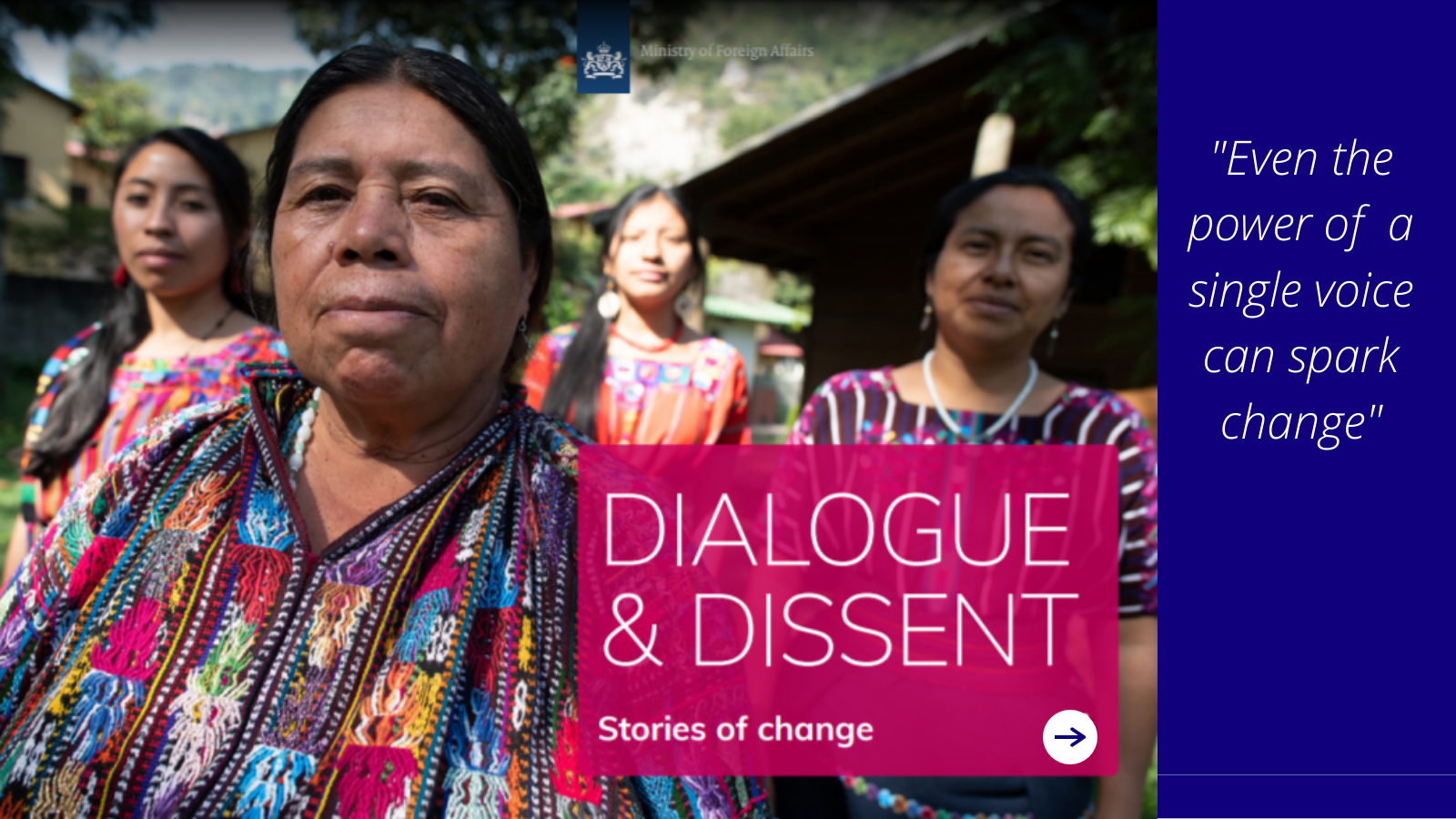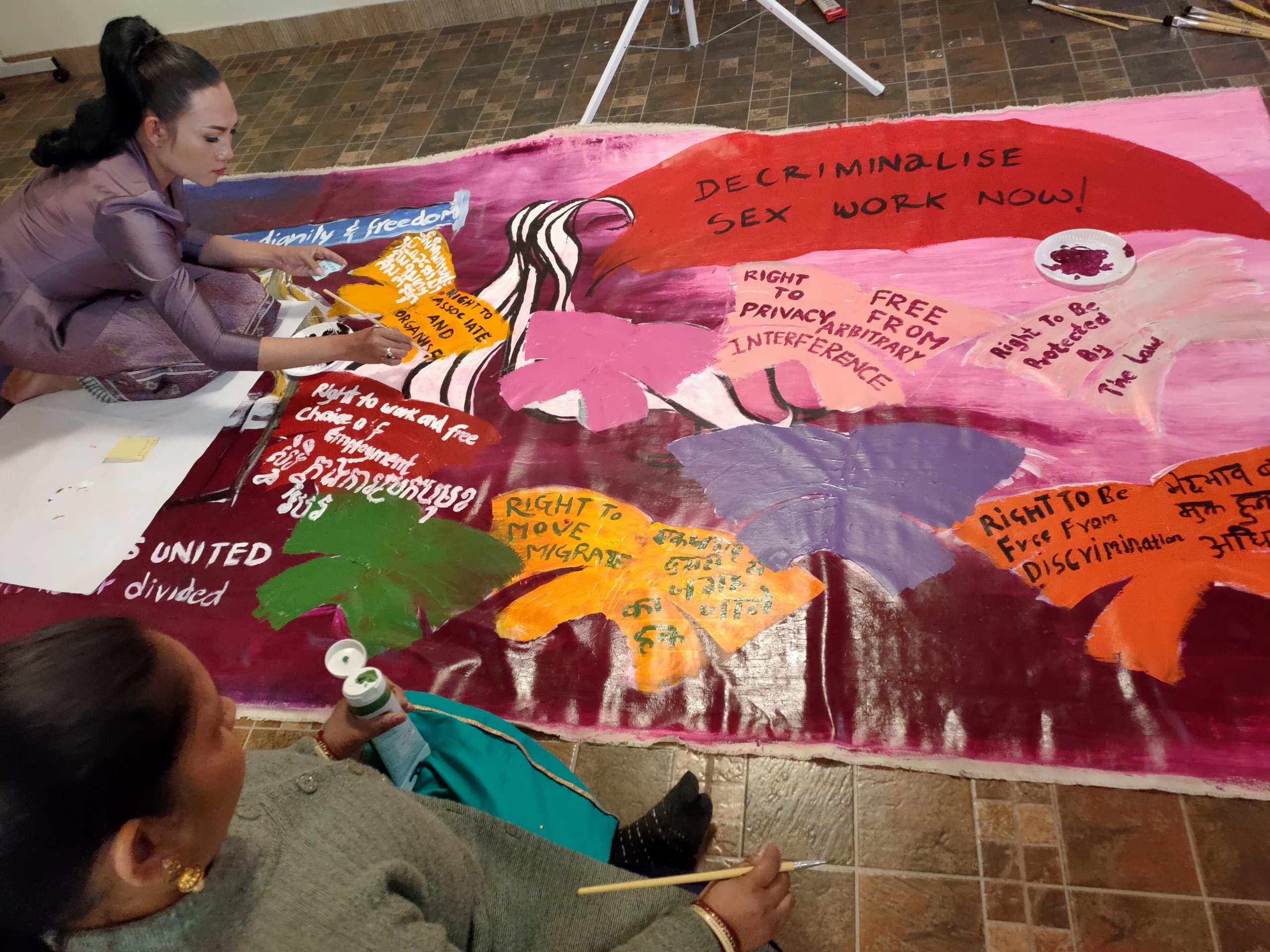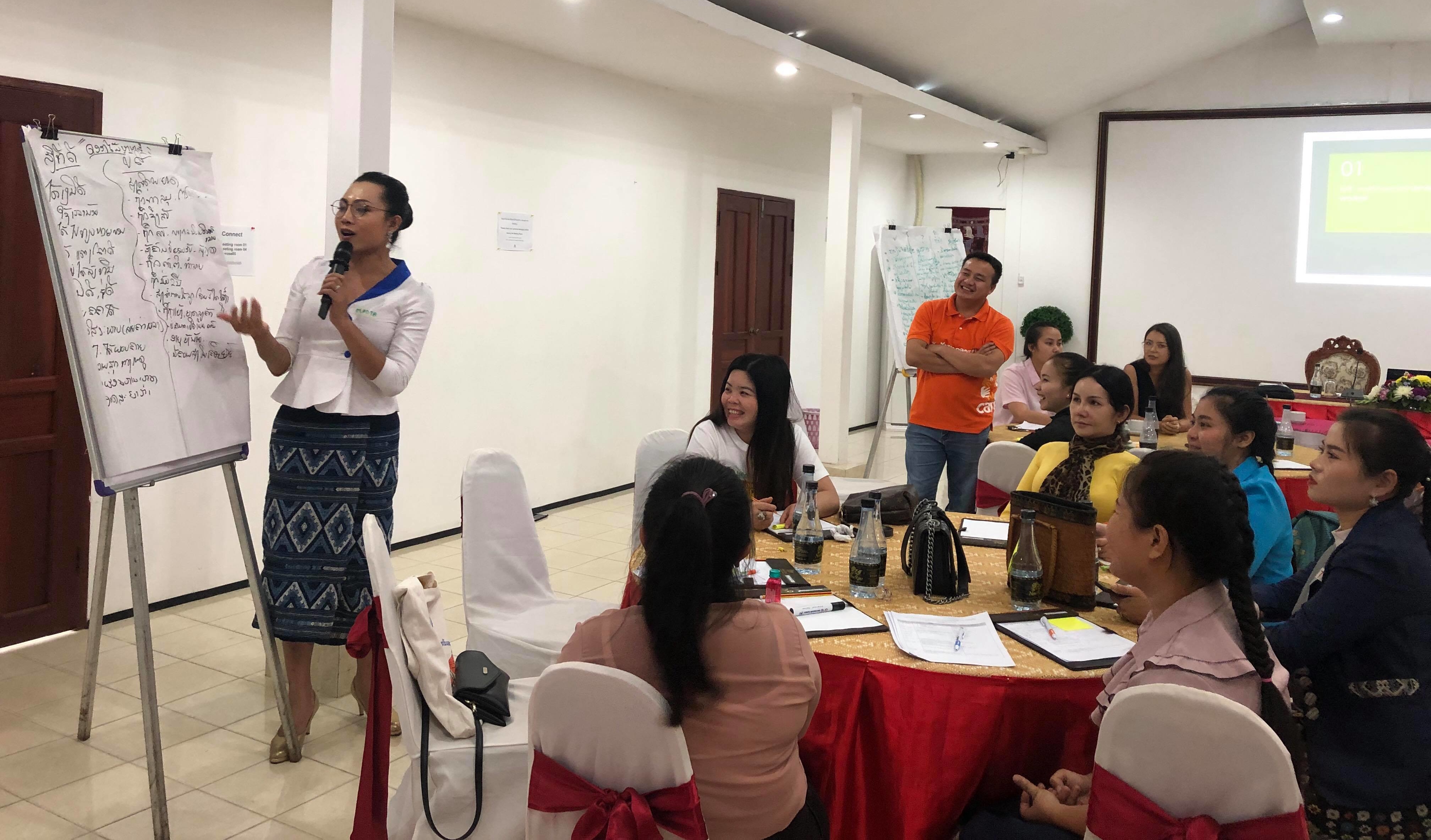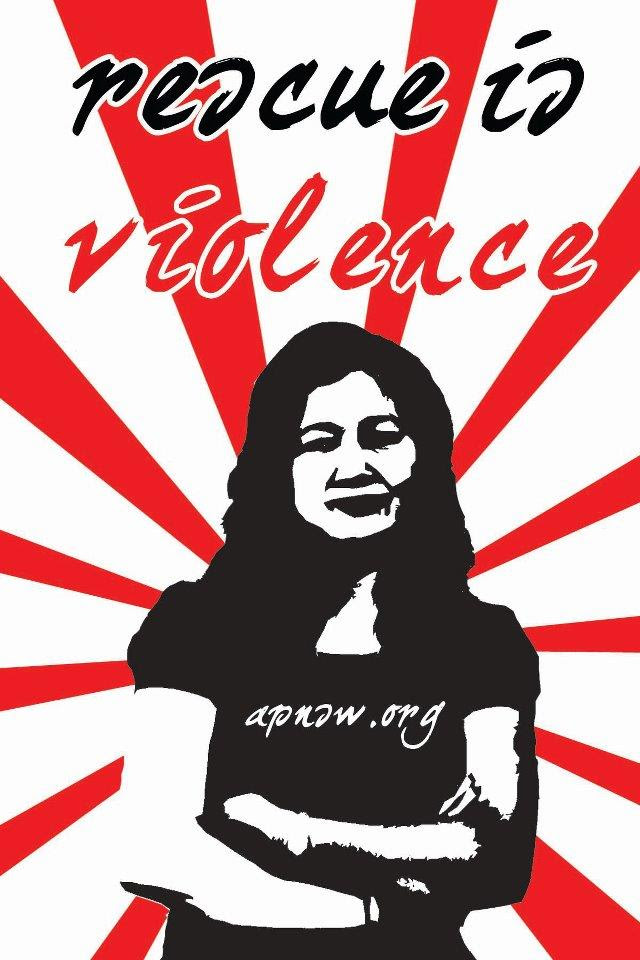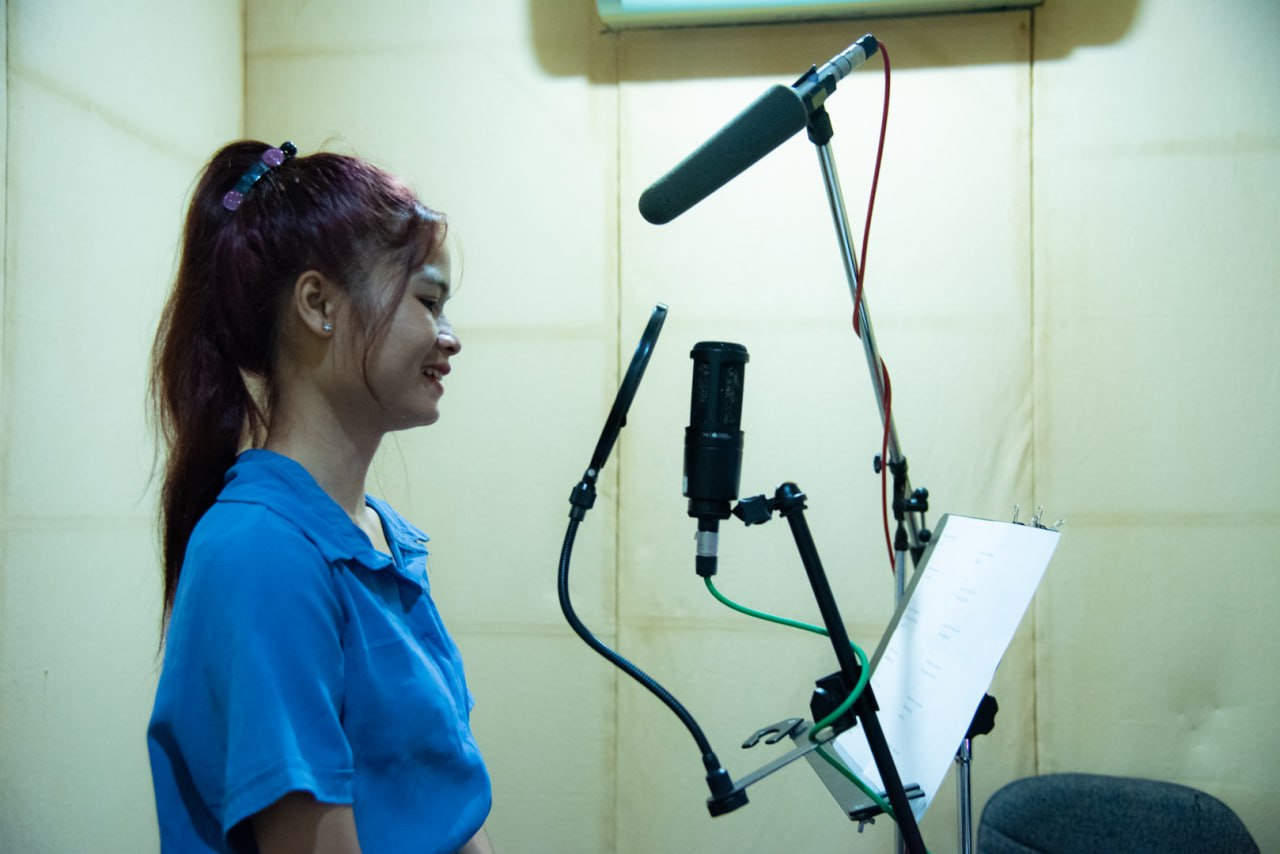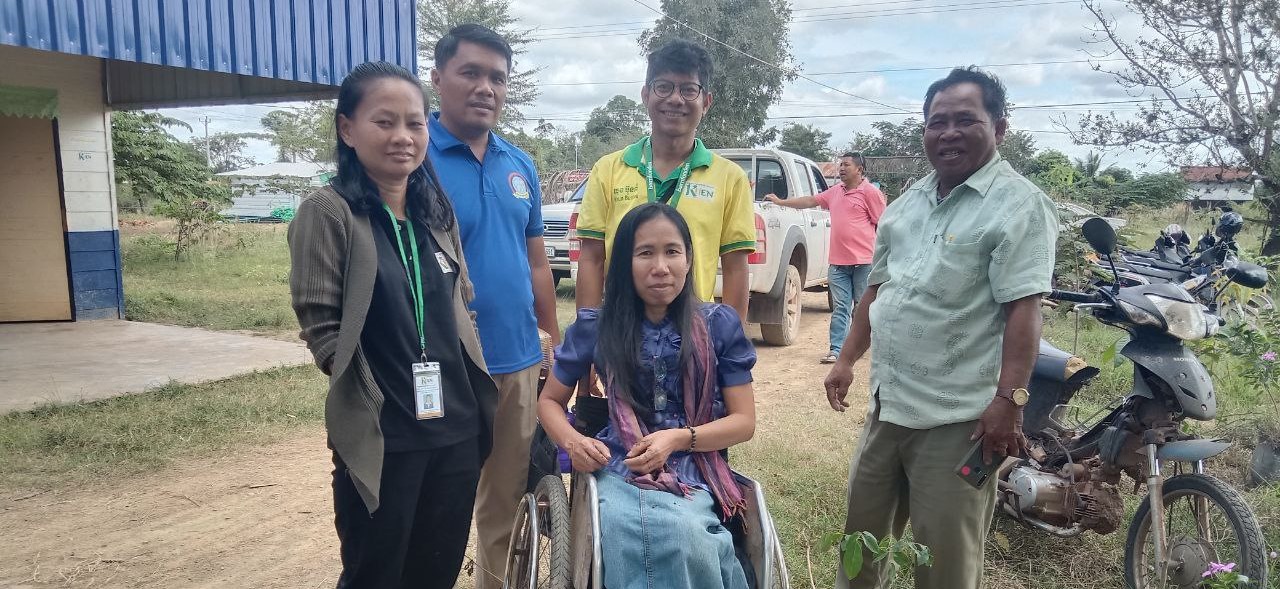Only Rights Can Stop the Wrongs
By: Gyanu Gurung, Programme Officer, Asia Pacific Network of Sex Workers (APNSW)
After a 4 year hiatus, Cambodia was once again scheduled for a review process as part of the Convention on the Elimination of all Forms of Discrimination Against Women (CEDAW). Parallel to the official report there is also an opportunity to present a so-called shadow report, an alternative report developed by any civil society group or individual to address issues, situations and problems of excluded and marginalised people that are not addressed by the state review report. In the shadow report, NGOs elaborate issues not raised by their governments or issues that have not been correctly represented. Shadow reporting is an important tool and voice for NGOs supporting women’s human rights, including but not limited to sex workers. The Asia Pacific Network of Sex Workers (APNSW) seized the opportunity to support and take the voices of sex workers to the global CEDAW level.
Between 8 and 10 May, a 3-day CEDAW Shadow Report Training was organised in Phnom Penh, Cambodia hosted by APSNW. Fifteen sex worker’s participants from different provinces participated. The objectives? Firstly, To build the conceptual understanding of CEDAW in order to strengthen the meaningful participation of sex worker rights advocates in the CEDAW review process. Secondly, no less than to produce a national CEDAW advocacy action plan!
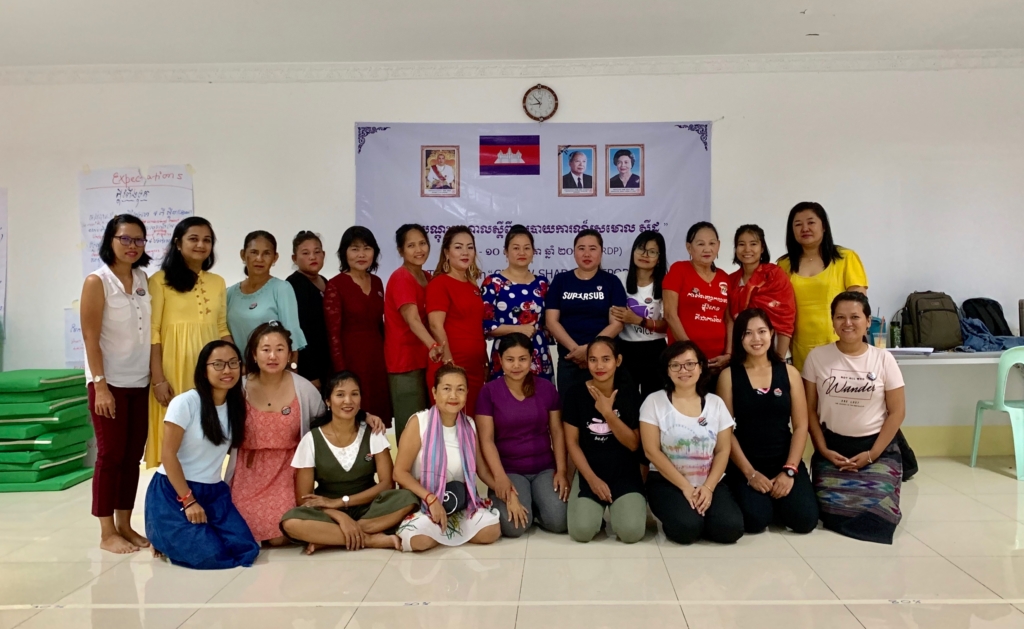
On the first day of the training, the majority of participants had only heard of the term CEDAW but had never had a formal meeting or training on it. Most of them were not even aware that the state had ratified CEDAW to ensure the rights of women. Despite this, still, Cambodian sex workers continue to face violence and sexual harassment from the police, clients and society. Police arrests because of carrying condoms while clients prefer the women not to.
One of the participants shared that, ‘If the police arrest us, we don’t have access to meet anyone from outside and we have no change of clothes. If we want to take a bath, we have to do it naked, outside.’ Similarly, the stigma of society is still there. The women cannot share what they do with their families. They face discrimination from health service providers if their profession is known. And their children face humiliation from others while some of the children have no access to school.
The training focused on identifying allies on sex workers rights and CEDAW, developing recommendations and issues to be addressed in the shadow report. Four key issues were prioritised:
Firstly, the participants clarified the difference between human trafficking and consensual adult sex work. One of the participants shared that, “There is a difference between selling somebody and selling services. Selling people refers to human trafficking where as consensual sex work is like selling services.” This simply means that under the anti-trafficking laws; sex worker’s rights are violated.
Secondly, most sex workers work in the entertainment industry. They face sexual harassment from clients and labour exploitation from their managers. They have to wear a uniform, high heels and drink alcohol every day because of the clients. If any client breaks a glass or something, the manager deducts the loss from their salary. If a sex worker spends the whole night with a client, they have limited time to work for the manager and have to pay a 5$ fine. The team recommended that the Ministry of Labour monitors the implementation of entertainment and labour laws.
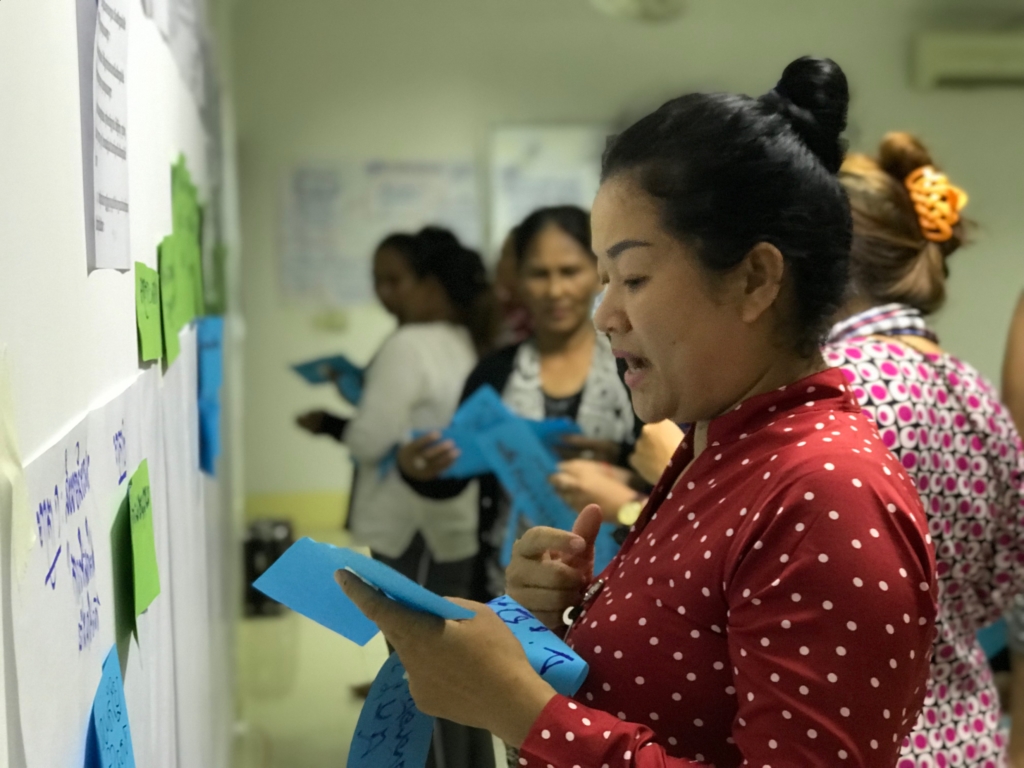
Thirdly, most of the violence sex workers face is from police whose duty it is to protect them. Similarly, sex workers are often neglected and discriminated by the community during social functions and occasions. They get discriminated when pursuing an education and employment and their children are also humiliated by society. One of the participants shared that, ‘Society discriminates us because of our profession but people will still come to us to have their needs satisfied, we never go to them.’ The participants recommended that the Ministry of Women Affairs takes up measures to stop harassment and exploitation from the police (police need to be trained on sex worker issues), society, and provide them with access to justice and rehabilitation in the community and ensure no discrimination of sex workers’ children.
Fourthly, most of the sex workers face discrimination from health service providers who know about their work and their HIV status. They recommended sex workers getting quality service without discrimination, expanding sexual and reproductive health services and mechanisms to monitor the effectiveness of health care services.
Last but not least, they urged the state and society to recognise sex work as decent work and the freedom to chose sex work as work. One of the participants shared, ‘Sex work is my choice, I enjoy my profession. I don’t want to do any other work.’ The state is responsible to ensure my rights don’t turn into wrongs. “Sex workers’ rights are human rights. Only rights can stop the wrongs.”

